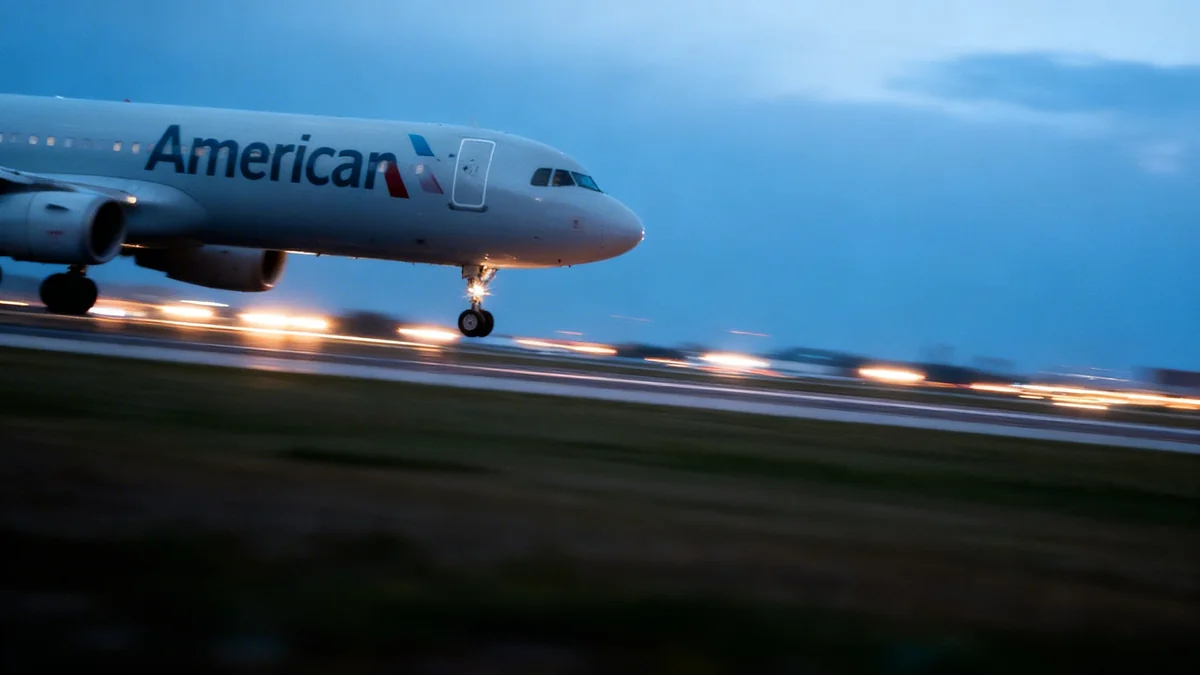KLM Royal Dutch Airlines has reported financial losses exceeding €30 million due to recent ground crew strikes at Amsterdam Airport Schiphol (AMS). These three industrial actions have severely disrupted operations at one of Europe's busiest aviation hubs, forcing the airline to cancel and reschedule numerous flights. The airline anticipates further losses of up to €10 million if planned strikes continue next week.
Key Takeaways
- KLM has lost over €30 million due to ground crew strikes.
- Future strikes could add another €10 million to losses.
- Disputes stem from ground staff demanding higher pay.
- KLM is already implementing a €450 million cost-saving program.
- The airline faces increased competition and taxes.
Impact of Industrial Action on KLM Operations
The recent ground crew strikes have caused significant operational challenges for KLM. Amsterdam Airport Schiphol is a major international gateway. Disruptions at this hub affect a wide network of flights and passengers.
The airline has had to cancel many flights. It has also rescheduled others. This leads to delays and inconvenience for thousands of travelers. Such actions directly impact KLM's service reliability.
Fact: Financial Strain
KLM estimates losses may climb by another €10 million if industrial action continues next week. This adds to the existing €30 million already lost.
These financial setbacks come at a critical time for KLM. The airline is currently undertaking a large-scale cost-saving initiative. This program aims to save €450 million by 2025. The ongoing labor disputes are adding extra pressure to this strategic plan.
Root Causes of the Ground Staff Disputes
The strikes are a result of disagreements between KLM management and unions representing its ground staff. While some unions accepted a new labor agreement, others rejected it. Three unions, NVLT, VKP, and De Unie, agreed to a deal that included a 2.25% pay increase.
However, members of FNV and CNV did not accept this offer. These unions argue that ground staff are not being treated fairly. They believe ground staff compensation is lower compared to pilots and other airline employees. They are demanding significantly higher pay increases.
According to reports, KLM has described these demands as “unrealistic and unattainable.” The airline has stated that increased labor costs would negatively affect its ability to compete in the market.
Background on Negotiations
Negotiations between KLM and the unions have been ongoing. Despite some unions accepting the proposed collective labor agreement, FNV and CNV remain steadfast in their demands. The airline has indicated that discussions are still open, but progress has stalled.
FNV has publicly stated its intention to continue strike actions. They plan to strike until their members receive a better offer. Another strike is already scheduled for the near future. This prolongs uncertainty for the airline and its passengers.
Broader Financial and Competitive Pressures
KLM's financial challenges are not limited to the ground crew strikes. The airline is operating in a highly competitive environment. Low-cost carriers continue to put pressure on pricing. Additionally, air travel taxes in the Netherlands have been rising.
These factors combine to create a difficult operating landscape. Some passengers are choosing to fly from airports in neighboring countries. They do this to avoid higher costs and taxes associated with Amsterdam. This trend further impacts KLM's revenue and passenger numbers.
Industry Trend: Passenger Shifts
Rising air travel taxes in the Netherlands have led some passengers to opt for airports in neighboring countries, impacting Amsterdam's traffic.
The financial impact of the strikes is multifaceted. It includes direct revenue losses from cancelled flights. It also includes increased operational expenses due to disruptions. Furthermore, repeated disruptions can damage customer confidence. This makes it harder for the airline to attract and retain passengers.
For an airline already focused on a major cost-reduction program, these labor disputes intensify the need for efficiency. Maintaining competitiveness in the global aviation market is a key objective for KLM.
Previous Legal Interventions and Future Outlook
Not all planned strike actions have proceeded as unions intended. Earlier this year, Dutch courts intervened. They blocked two strike actions planned by FNV. These actions were scheduled before the busy summer travel season. The court rulings highlighted the need to balance labor rights with operational stability, especially during peak travel periods.
Despite these legal setbacks, the unions remain committed to their cause. They continue to push for better terms for their members. This determination suggests that the uncertainty surrounding labor relations at KLM will likely continue for some time.
- Legal Rulings: Dutch courts previously blocked two FNV strike actions.
- Union Determination: Unions like FNV are committed to continuing strikes for better offers.
- Operational Impact: Continued strikes mean ongoing flight cancellations and rescheduling for KLM.
The ongoing situation poses a challenge for KLM. The airline must manage both its financial strategy and its relationship with its employees. The outcome of these negotiations will have a lasting impact on KLM's operations and financial health. The travel industry watches closely as these events unfold at a major European hub.





